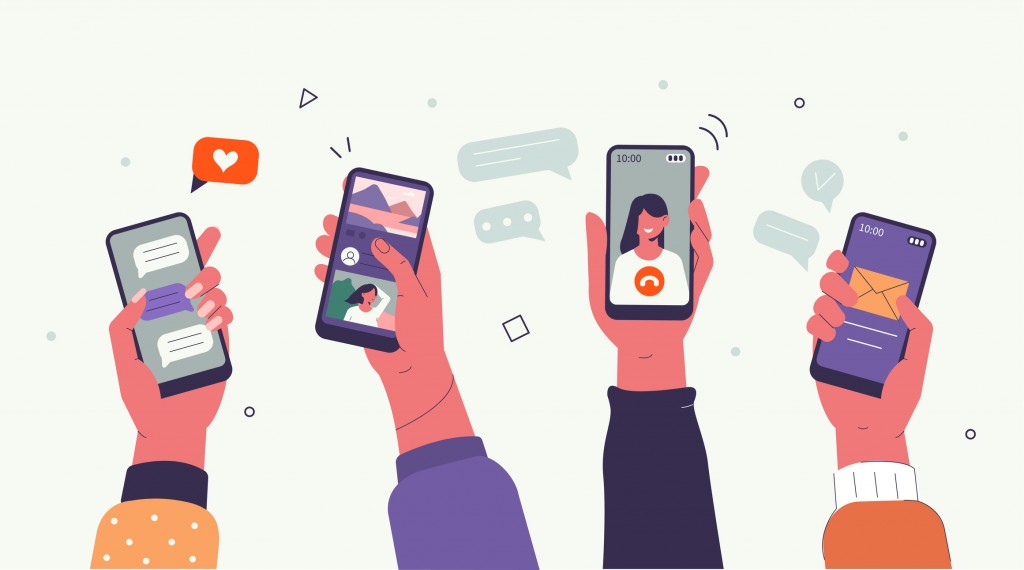Rise of Social Media and Internet Have Made People More Vulnerable to Power of ‘Influencers,’ CSUN Professor Says Media Contacts: Sydnee Roddy or Carmen Ramos Chandler

(Image by Irina_Strelnikova, iStock)
Living in the midst of a digital-age world, scrolling and constant notifications have become the norm for most young adults, leaving them within easy reach of distractions, solicitations and the influence of those who use the internet and social media to influence their followers.
“All those things — distractions, advertising, etcetera — are right there, within reach with just a glance or the touch of a finger on a smartphone, ” said California State University, Northridge marketing professor Kristen Walker, who teaches in the David Nazarian College of Business and Economics. “That easy reach can be intrusive, and means that those who are always connected are more susceptible to the influence of others, whether known advertisers or someone else.”
The rise of social media over the past decade, Walker said, has given people an easier way to communicate and advertisers new ways to connect directly with individuals. It has also given rise to “influencers” who, through their postings, can inspire trends and persuade their followers that their lifestyles are attainable.
“The time of day an influencer posts can completely make or break the amount of interaction they may receive on a post,” Walker said. “On the other hand, constantly connecting with users means more trends to follow, fear of missing out, and increased screen time overall.”
The more followers and viewers someone has on a social media application gives them a greater opportunity to influence those followers however they please, she said, noting that members of Kardashian-Jenner family, a group of socialite sisters managed by mother Kris Jenner, became the Millennial and Generation Z’s inspiration for fashion and other trends among their millions of followers.
Walker drew a comparison between the Kardashian-Jenner family and the Osmonds, a singing group made up of five brothers, all Mormon, who reached the height of their popularity in the 1970s, when they dominated television and radio.
Despite the Osmonds’ level of influence, the ability in the time before social media and the internet to truly influence people’s lives was limited, she said.
Prior to social media, “there were physical boundaries that typically were not crossed,” Walker said. “These boundaries existed in real places where one could access media … whether that be in the video store with the adult section in the rear or having one computer located in a designated spot in the house. But now, there are no limits. Everything is right there at your fingertips wherever you and your smartphone are. And the internet makes it easy to get around whatever barriers there may be.”
She noted that many young people unwittingly cross those barriers “and see more than they should” at an impressionable age.
“True, people have a choice in what they access, but that doesn’t mean it’s not easy to eventually come across something,” Walker said. “This is the nature of a capitalistic society. That easy access, inadvertent or not, can have an impact on how a person sees the world and themselves. Which can be dangerous for young people, who are still growing and learning who they want to be.”
That exposure is not something that can be retracted once it happens, she said.
“People have no choice but to surrender to the media and technology because it is all around us now,” Walker said. “They just need to be aware that it’s there and understand the influence it has on their lives.”
This awareness can prevent issues like news media bias considering a good portion of adolescents prefer to receive their news from personalities, influencers, and celebrities. Although there is absolutely no harm in receiving information from the aforementioned individuals, it is important to fact check in order to maintain a healthy ability to distinguish false news or unbiased news. By doing so, the seed to question everything that one sees on the Internet is planted, making it that much easier to recognize what is valid and not.




